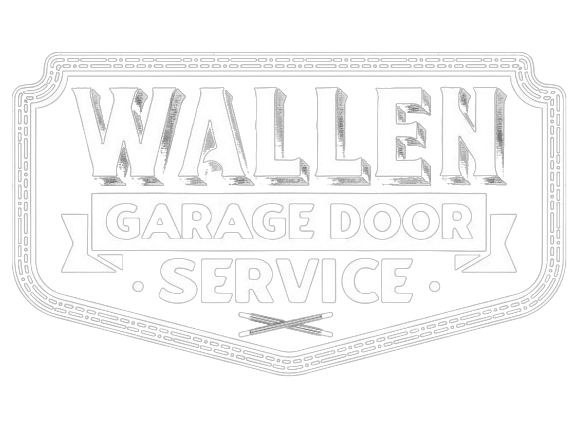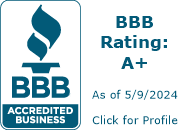In 2024, the significance of commercial garage door installation cannot be overstated for businesses across various sectors. These doors not only enhance the security of your premises but also contribute to the operational efficiency and aesthetic appeal of your business.
This guide aims to walk you through the essentials of commercial garage door installation, tailored to meet the demands of modern enterprises. Whether you’re planning to replace an old door or install a new one at a newly constructed facility, this comprehensive overview will equip you with the knowledge needed to make informed decisions.
By the end of this guide, you’ll understand the key considerations, the latest trends in garage door technology, and how to choose the right professionals for the job, ensuring that your investment enhances the value and functionality of your business.
Section 1: Types of Commercial Garage Doors
When considering the installation of a commercial garage door, it’s essential to understand the various types available to ensure you select the right one for your business needs. The main types of commercial garage doors include sectional doors, rolling doors, and high-speed doors. Each type offers unique benefits and is suited for specific applications.
- Sectional Doors: These doors are highly popular due to their durability and security. Constructed from several horizontal panels, sectional doors open vertically and then slide into the ceiling. They are ideal for businesses needing thermal efficiency and space-saving solutions. Their robust construction makes them suitable for warehouses, automotive shops, and commercial garages that require strong insulation and security.
- Rolling Doors: Also known as roll-up doors, these are constructed from interlocking metal slats that coil around a drum above the door opening. Rolling doors are an excellent choice for businesses with limited headroom. They are commonly used in storage facilities, retail environments, and loading docks where space is at a premium and a quick, compact door solution is needed.
- High-Speed Doors: These doors are designed for environments requiring fast and efficient access. High-speed doors can open and close rapidly, minimizing the time the door is actually open, which helps maintain controlled environments. They are particularly useful in manufacturing plants, food processing facilities, and any area where speed is crucial to maintaining temperature and cleanliness.
Understanding the differences between these types of doors can guide you in making a well-informed decision about commercial garage door installation, ensuring that your choice meets the specific operational and aesthetic needs of your business.
Section 2: Pre-Installation Considerations
Before proceeding with the installation of a commercial garage door, several crucial factors must be evaluated to ensure the success and longevity of your investment. These considerations will help in selecting the most suitable door type and the best vendor for installation.
- Space Requirements: Assessing the space where the garage door will be installed is fundamental. You need to consider the headroom, side room, and backroom available. Different types of doors require varying amounts of space; for example, rolling doors are suitable for limited headroom, whereas sectional doors might need more ceiling space for installation.
- Door Material: The choice of material for your commercial garage door impacts not only its durability and maintenance but also its functionality. Common materials include steel, aluminum, and fiberglass. Steel doors are prized for their strength and security, aluminum doors are lighter and resistant to corrosion, and fiberglass doors are robust against denting and cracking.
- Security Needs: Depending on the location and nature of your business, security might be a paramount concern. Look for doors with enhanced security features such as heavy-duty locks, reinforced panels, and integrated alarm systems. Evaluating the security features of each door type is essential to protecting your premises.
- Choosing the Right Vendor and Installer: Selecting a reputable vendor and skilled installer is critical. Research vendors and read customer reviews to assess their reliability and service quality. A competent installer can not only ensure that the door is fitted correctly but can also provide valuable advice on maintenance and warranty support. Opt for vendors who offer comprehensive service, from installation to after-sales support.
Considering these factors will lead to a more informed and effective decision-making process for your commercial garage door installation, ultimately ensuring that the door you choose meets your business’s operational needs and security standards.
Section 3: The Installation Process
The process of installing a commercial garage door involves several detailed steps, from the initial measurements to the final setup. Following a structured approach can help minimize issues and ensure a smooth installation.
- Initial Measurements: Accurate measurements are crucial. Measure the width and height of the door opening, the headroom (space above the door), the side room (space beside the door), and the backroom (space behind the door). These dimensions determine the size of the door needed and the type of track system suitable for your space.
- Choosing the Door System: Based on the measurements and your business requirements (discussed in the previous sections), select the appropriate door system. This decision should consider the door’s material, mechanism (e.g., rolling, sectional, high-speed), and any custom features needed.
- Installation of Tracks and Springs: Install the tracks along the sides of the door opening, followed by the mounting of the spring system, which is crucial for balancing and smooth operation. Ensure all components are aligned correctly to avoid any operational issues.
- Door Installation: With the tracks and springs in place, the door panels can be set. Start from the bottom, securing each panel as you go up. Attach the rollers to the tracks through the hinges on each panel. This step often requires precision and teamwork to ensure the panels are aligned and secure.
- Setting Up the Opener and Control System: If your door includes an automatic opener, this will be installed and connected to the power supply. Program the opener according to the manufacturer’s instructions. Also, install any control systems, such as remote controls or keypad entries.
- Testing and Adjustments: After installation, test the door multiple times to ensure it opens and closes smoothly. Check the balance of the door and make adjustments to the springs if necessary. Look for any unusual noises or movements and adjust as required.
Common Challenges and Troubleshooting Tips
- Alignment Issues: If the door isn’t level or the panels aren’t aligned, it can lead to operational problems. Recheck the alignment of tracks and ensure all panels are even.
- Spring Tension: Incorrect spring tension can make the door hard to open or close. If the door feels too heavy or too light, adjust the spring tension. This task can be hazardous, so it may be safer to contact a professional if you’re not experienced.
- Opener Malfunctions: Problems with the door opener are common, from remote control malfunctions to issues with the drive mechanism. Refer to the opener’s manual for troubleshooting specific problems or contact the manufacturer for support.
By following these detailed steps and being aware of common installation challenges, you can ensure a successful commercial garage door installation, enhancing both the functionality and security of your business premises.
Section 4: Maintenance and Safety Guidelines
Maintaining your commercial garage door is essential for ensuring its longevity and safety. Regular maintenance not only extends the life of the door but also prevents accidents and costly repairs. Here’s a practical checklist for routine maintenance and essential safety tips.
Routine Maintenance Checklist:
- Visual Inspection: Every month, inspect the door for signs of wear and tear. Look for any loose components, such as cables, springs, and rollers, and check for rust or corrosion on metal parts. Ensure that all panels are intact and securely attached.
- Lubrication: Proper lubrication of the moving parts, including rollers, hinges, tracks, and springs, is crucial. Use a silicone-based lubricant every six months to keep these parts operating smoothly and quietly, which prevents sticking and excess wear.
- Balance Test: Periodically test the balance of your door. Disconnect the automatic opener and manually lift the door halfway. A well-balanced door will stay in place, while an unbalanced door will fall closed or shoot open. This test helps detect worn springs that need adjustment or replacement.
- Reverse Mechanism Test: For doors with automatic openers, regularly test the reverse mechanism by placing an object, like a piece of wood, under the door. When the door contacts the object, it should reverse direction to fully open. This feature is critical for preventing injuries.
- Track Cleaning: Keep the tracks free of debris and buildup to ensure the door operates smoothly. Check the tracks for any misalignment that might cause operational issues.
Safety Tips:
- Professional Repairs: If you encounter significant issues, such as broken springs or a malfunctioning opener, it’s safer to contact a professional for repairs. Commercial garage doors are heavy and complex, making DIY repairs risky.
- Keep Controls Out of Reach: Place control panels and remotes away from the reach of children to prevent unauthorized and potentially dangerous use.
- Regular Professional Inspections: Annually, hire a professional to inspect your commercial garage door. They can spot potential problems you might miss and perform complex maintenance tasks safely.
- Update Safety Features: Ensure your door’s safety features, like photo-eye sensors and automatic reversal systems, are up-to-date and functioning correctly. These features are crucial for preventing accidents.
By adhering to these maintenance and safety guidelines, you can ensure that your commercial garage door installation remains in optimal condition, functioning safely and efficiently for years to come.
Section 5: Upgrading and Replacing Old Garage Doors
Upgrading or replacing an existing commercial garage door can be a significant decision for any business. Understanding when and why to make this decision is crucial for optimizing both operational efficiency and security.
When and Why to Consider Upgrading or Replacing:
- Enhanced Security: Older garage doors might lack the latest security features, such as advanced locking systems and integrated alarm systems. Upgrading to a newer model can help protect your premises from theft and unauthorized access.
- Increased Energy Efficiency: If your current door lacks insulation, you may be paying more for heating and cooling your space. Newer doors offer better insulation options, which can significantly reduce energy costs.
- Operational Efficiency: As commercial garage doors age, they can become noisy and less reliable, often requiring frequent repairs. New doors offer smoother operation and reliability, which can enhance business operations, especially in high-traffic environments.
- Aesthetic Improvement: An old, worn door can negatively impact the appearance of your business. Installing a new door can improve curb appeal, potentially attracting more customers and improving the overall look of your premises.
Latest Trends and Technologies in Commercial Garage Doors for 2024:
- Smart Technology Integration: The latest commercial garage doors are incorporating smart technologies, allowing for remote operation, monitoring, and integration with other security systems. This technology provides convenience and enhanced control over who accesses your garage.
- High-Speed Doors: Increasingly popular, high-speed doors offer rapid opening and closing mechanisms, which can significantly reduce energy loss, maintain environmental control, and improve efficiency in high-traffic areas.
- Durable Materials: The use of more durable materials like high-strength steel and aluminum composites continues to rise. These materials offer longevity and better weather resistance, reducing maintenance costs over time.
- Customization Options: Modern garage doors come with extensive customization options to match specific business needs and aesthetic preferences. These include various colors, finishes, and window configurations.
Considering an upgrade or replacement of your commercial garage door can be a worthwhile investment, offering substantial benefits in security, efficiency, and appearance. Keeping up with the latest trends and technologies ensures that your business remains competitive and secure.
FAQs on Commercial Garage Door Installation
- What are the main differences between residential and commercial garage doors?
The primary differences between residential and commercial garage doors lie in their size, durability, and functionality. Commercial doors are generally larger, built to withstand more frequent operation, and are often made of stronger materials to enhance security and withstand harsher conditions. Additionally, commercial garage doors may have advanced features such as high-speed opening and closing, integrated security systems, and enhanced insulation properties to meet specific business requirements.
- How long does a typical commercial garage door installation take?
The installation time for a commercial garage door can vary depending on several factors, including the type of door, the complexity of the installation, and the readiness of the installation site. Generally, the installation can take anywhere from a few hours to a full day. More complex systems, such as those with advanced security features or custom specifications, may take longer to install.
- What are the safety features to look for in a commercial garage door?
When selecting a commercial garage door, important safety features to consider include auto-reverse mechanisms, motion detection, manual control options, and emergency release handles. Additionally, modern doors often come with photoelectric eyes, which are sensors that stop the door from closing if an object or person is detected in its path. Ensuring these features are present and functional is crucial for maintaining a safe environment.
- Can commercial garage doors be customized for my business?
Yes, commercial garage doors can be extensively customized to fit specific business needs. Options for customization include the choice of material, color, window inserts, and the incorporation of company logos. Additionally, operational mechanisms such as the speed of opening and closing, security enhancements, and integration with existing business systems can also be tailored.
- What are the signs that my commercial garage door needs replacing?
Signs that it may be time to replace your commercial garage door include frequent breakdowns, noticeable wear, and tear such as rusting or denting, persistent operational noise, and increasing repair costs that make continued maintenance economically unfeasible. Additionally, if your door lacks modern safety features or insulation properties, upgrading to a new door could provide security, efficiency, and operational benefits.
Conclusion
Choosing the right type of commercial garage door and ensuring it is professionally installed are critical decisions that can significantly affect the functionality, security, and appearance of your business. A well-installed commercial garage door offers numerous benefits, including improved security, greater operational efficiency, and enhanced aesthetic appeal, all of which contribute to a positive perception and the smooth operation of your business.
For businesses in Hampton Roads, VA, Wallen Garage Door Repair and Installation Services stands as a trusted partner, offering expert solutions in commercial garage door installation. With their proven track record of reliability and a deep understanding of both modern trends and traditional styles, Wallen Garage Door ensures that your installation or repair job is handled with the utmost professionalism and attention to detail.
Investing in the right commercial garage door with the assistance of seasoned professionals like Wallen Garage Door Repair and Installation Services can elevate your business’s functionality and security, ensuring long-term benefits and satisfaction.







